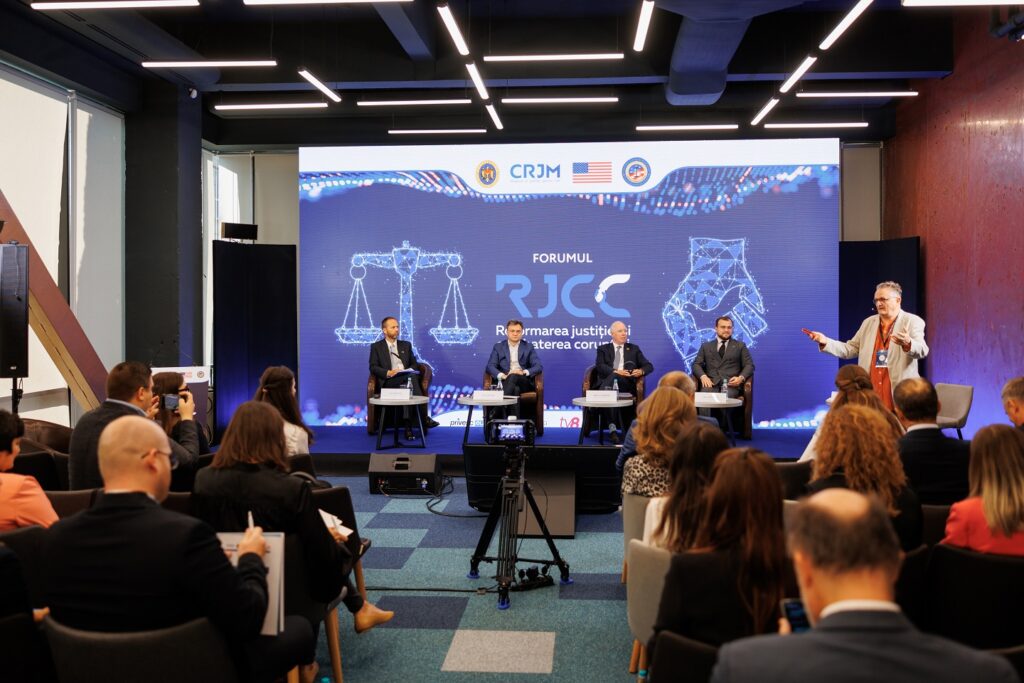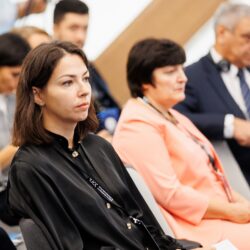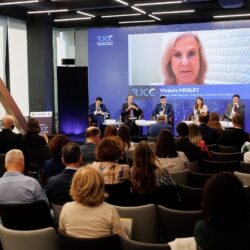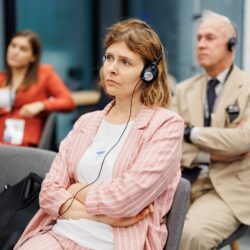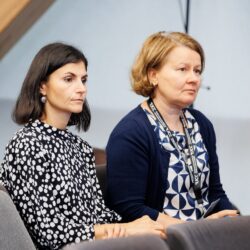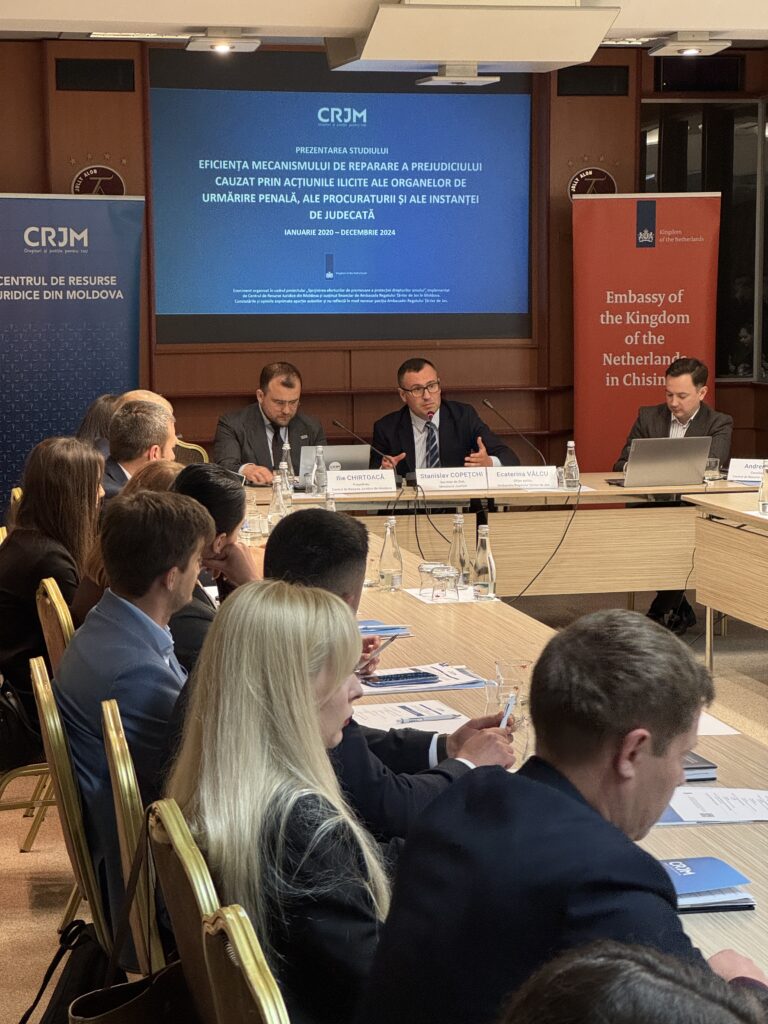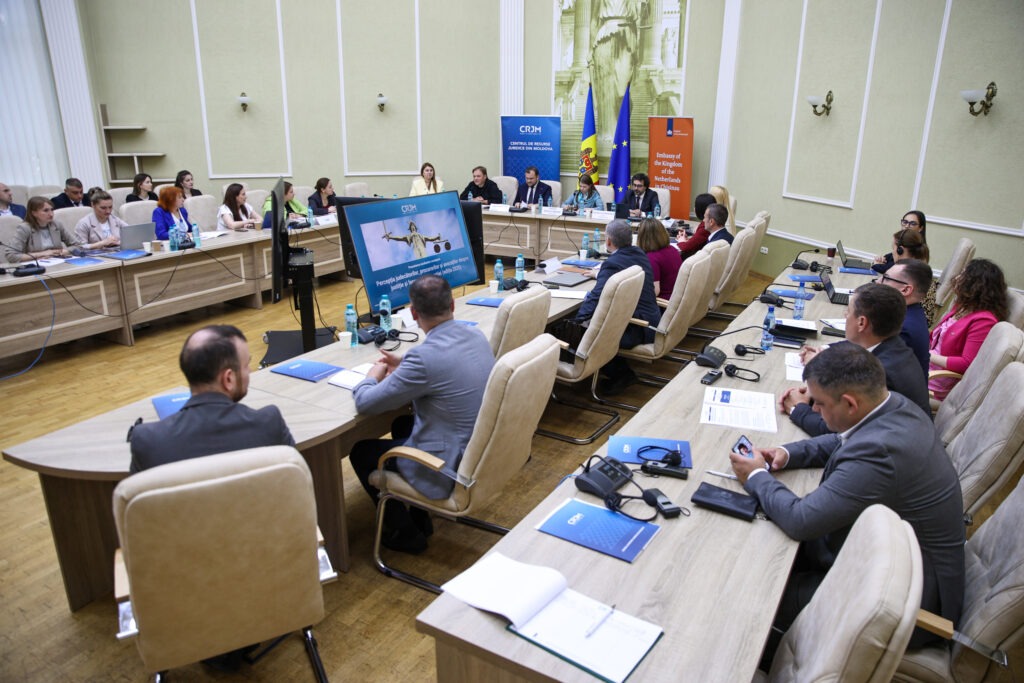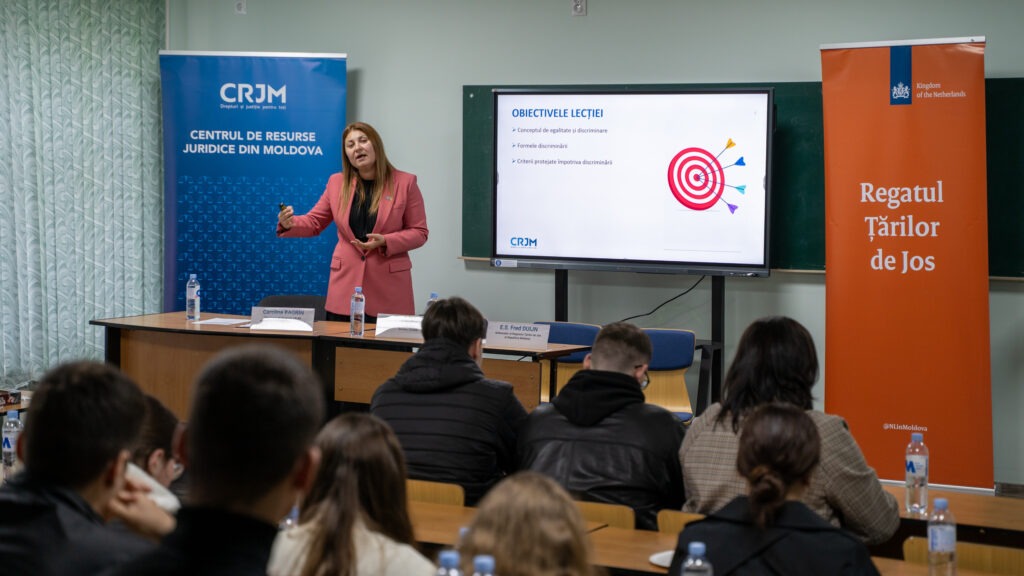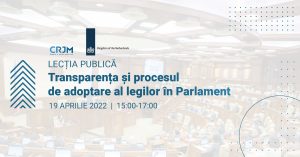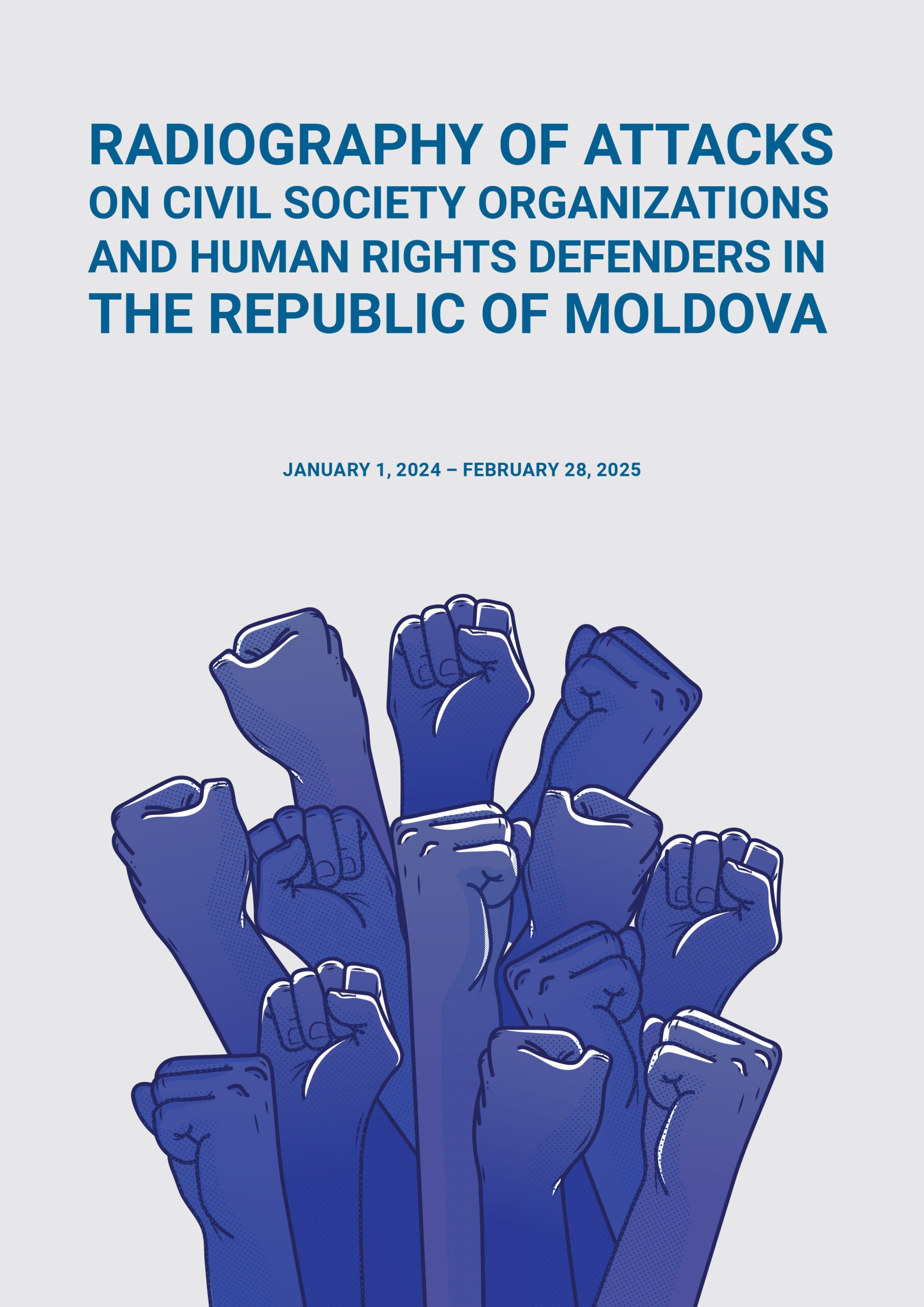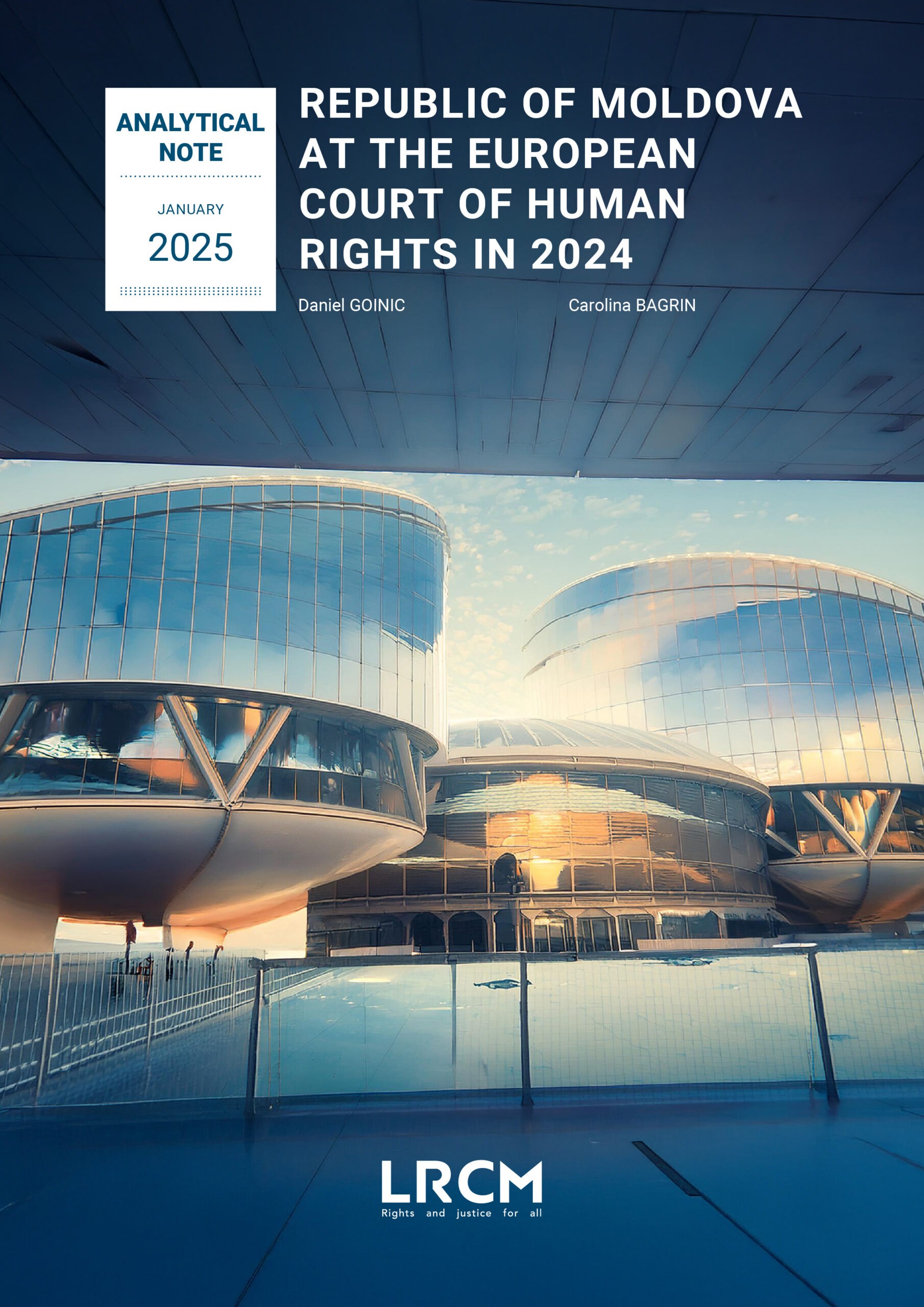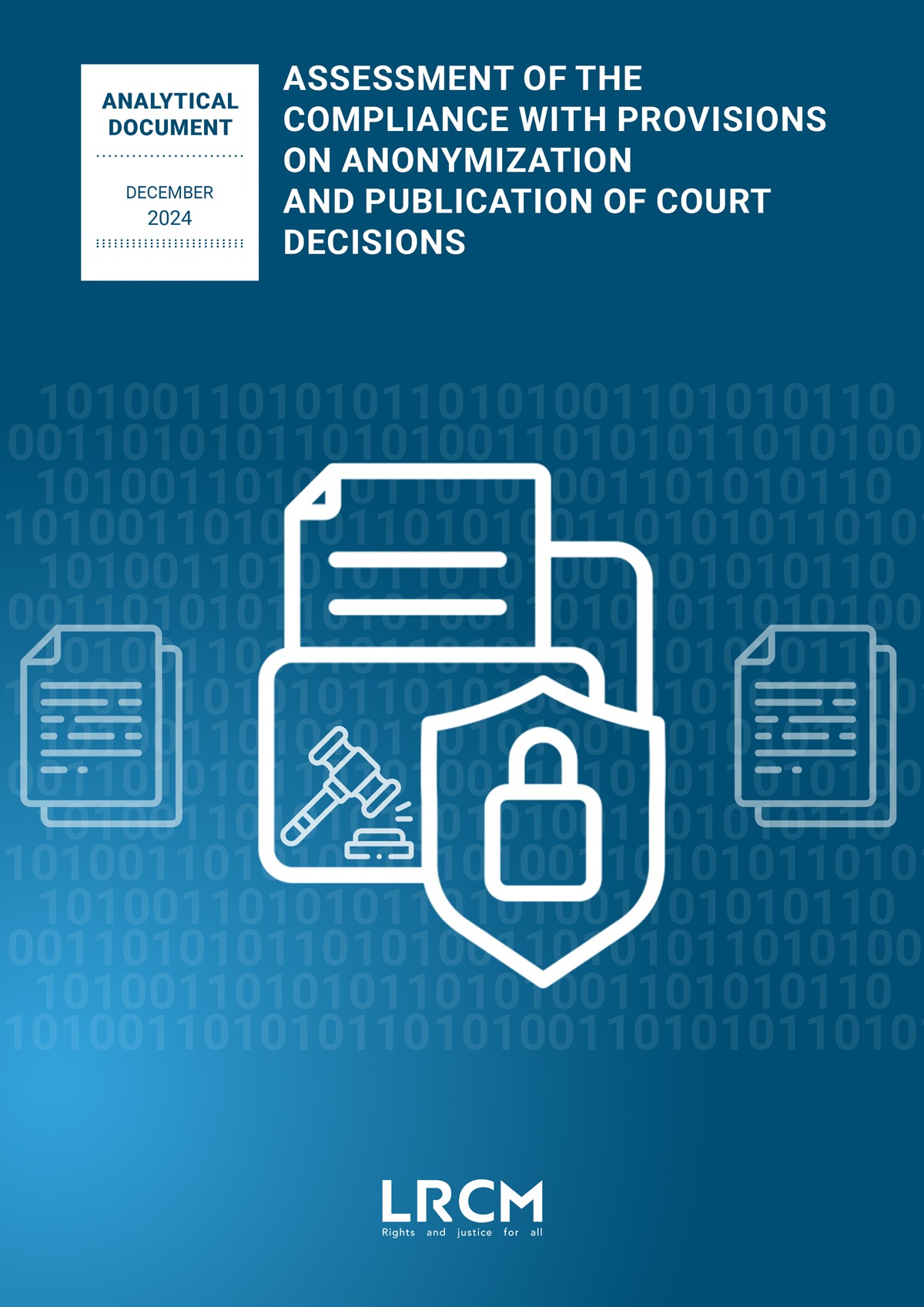How much of an impact are the reforms initiated in the justice sector having? What are the results achieved and lessons learned in this process? What steps are to be taken to achieve the objectives of the reforms? What solutions for optimisation and digitisation are available? These are just a handful of the subjects that were the focus of discussion during the most recent edition of the Justice and Anticorruption Reforms Forum, held on 19-20 September in Chișinău.
Key policy makers, judicial actors, national and international experts from Romania, Ukraine, the United States of America, Denmark, the Kingdom of the Netherlands, Slovenia and the United Kingdom of Great Britain and Northern Ireland, as well as representatives of civil society met in an extended platform to discuss progress in recent years and address solutions that will strengthen the rule of law in the Republic of Moldova.
Opening the event, Moldovan Prime Minister Dorin Recean noted from his visits to the country that citizens complain about the injustice in the justice system caused by corrupt judges and prosecutors. The Prime Minister said that the government provides absolutely all the necessary tools for the justice system to be reformed, and his main expectation from the Forum is to identify ways for courageous and honest people in the system to achieve its transformation.
Moldova’s development partners, in the person of the Ambassador of the United States of America, Kent D. Logsdon, and the Ambassador of the European Union, Jānis Mažeiks, stressed the importance and the need for a reformed, strong justice system that serves the interests of citizens. The increased attention to the justice sector is motivated by Moldova’s status as a candidate country for EU membership and by the expectations of society.
“There are no fast cuts or simple ways to live in a democracy where human rights, the rule of law, and the law are prioritized. Decisions impacting the judiciary must be supported by facts, discussion, and consultation in a democracy. This Forum’s purpose is to debate the system’s most significant issues as well as its challenges and achievements. Together with Moldovan and international experts, we aim to identify effective solutions for a reformed justice system”, said Ilie Chirtoacă, Executive Director of the Legal Resources Centre from Moldova.
The debates surrounding the external evaluation of judges and prosecutors (vetting) have confirmed, on the one hand, the importance of this effort in the context of the European integration process, when citizens are demanding the transformation of the judicial system and the fight against corruption. On the other hand, discussions at the Forum brought to light paradoxes such as the resignations of judges to avoid vetting or the lack of sufficient candidates to fill vacancies at the Supreme Court of Justice, which is also undergoing reform.
Participants at the event noted that efforts to fight corruption in the judiciary remain modest and that society’s dissatisfaction with the situation in the judiciary calls for drastic solutions. Strengthening anti-corruption institutions will continue to be a priority on the authorities’ agenda, and in order to combat corruption more successfully, mechanisms must be put in place to protect whistleblowers and to specialise prosecutors investigating such illegalities.
Citizens’ access to justice is directly related to the optimisation of the judicial map in the Republic of Moldova. Discussions on this topic at the Forum highlighted the need for courts not only to be close to citizens, but also to have human and technical resources, procedures to ensure random distribution of cases and specialisation of judges.
The prospects for a justice system in which artificial intelligence and digital tools make the work of judges, prosecutors and lawyers more efficient were addressed for the first time at the Justice and Anticorruption Reforms Forum. Representatives of the authorities explained the IT infrastructure available in Moldova’s justice system and how more advanced programmes could be integrated into it. The application of technological innovations in justice is unavoidable, therefore the reform of the national judicial system will include concrete steps of upgrading in line with international trends and realities.
All Forum debates can be watched online: the opening session and the 1st panel dedicated to the judicial vetting and the Supreme Court of Justice reform; the 2nd panel focused on the investigation and effective sanctioning of corruption; the 3rd panel with discussions on the optimisation of the judicial map; and the 4th panel exploring the future of justice.
The main statements, takeaways and images from the current edition of the Forum are in a video summary.
The fifth edition of the Forum was traditionally organized by the Legal Resources Centre from Moldova, in collaboration with the Government of the Republic of Moldova, thanks to the financial support of the US State Department through the State Bureau of International Narcotics and Law Enforcement Affairs of the United States Embassy in Moldova.
